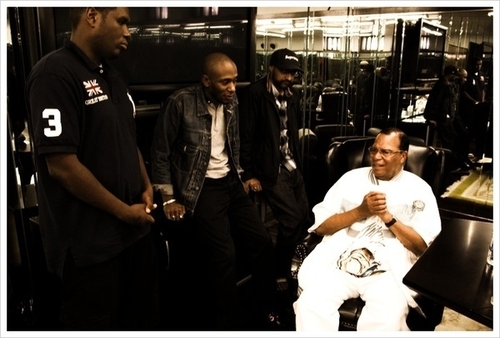Hip-Hop, Jay Electronica and Minister Farrakhan’s Call for a Cultural Revolution
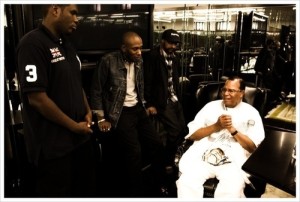 “Let me tell you something. Culture – listen carefully now – culture, Muhammad teaches us, is the OUTGROWTH OF KNOWLEDGE AT A PARTICULAR PERIOD IN HISTORY. What a man’s culture WAS, as he EVOLVES and he gets a new Knowledge, he develops a new tradition. New culture. New ideas. New way of life. That WAS our culture. But today we’re in a new day and we’re getting a new Wisdom. And WE MUST bring forth a totally new culture. This is what we’re saying: If the Black Man must create, create a new music, brother. No more blues – Black Man don’t SING BLUES NO MORE!! Listen to what we’re saying: NO! Black Man don’t play jazz no more. Not jazz – not that stuff that comes out of our slave day. If you are a free man, then speak to the free idiom. Make your poetry that speaks to the new. Make your art and your drama that of the new. Then you are creating a new thing that the world must come up to. Then you’re the original man again. And the original man does not copy: THE ORIGINAL MAN ORIGINATES’ FOR OTHERS TO COPY. Remember this.” –Hon. Min. Louis Farrakhan, Message At The East, January 1971, Brooklyn, NY
“Let me tell you something. Culture – listen carefully now – culture, Muhammad teaches us, is the OUTGROWTH OF KNOWLEDGE AT A PARTICULAR PERIOD IN HISTORY. What a man’s culture WAS, as he EVOLVES and he gets a new Knowledge, he develops a new tradition. New culture. New ideas. New way of life. That WAS our culture. But today we’re in a new day and we’re getting a new Wisdom. And WE MUST bring forth a totally new culture. This is what we’re saying: If the Black Man must create, create a new music, brother. No more blues – Black Man don’t SING BLUES NO MORE!! Listen to what we’re saying: NO! Black Man don’t play jazz no more. Not jazz – not that stuff that comes out of our slave day. If you are a free man, then speak to the free idiom. Make your poetry that speaks to the new. Make your art and your drama that of the new. Then you are creating a new thing that the world must come up to. Then you’re the original man again. And the original man does not copy: THE ORIGINAL MAN ORIGINATES’ FOR OTHERS TO COPY. Remember this.” –Hon. Min. Louis Farrakhan, Message At The East, January 1971, Brooklyn, NY
“Mao Tse Tung, one of the greatest revolutionaries of our time had a billion people to convert to his idea. What did he do? He saw the value of the cultural community. They took his ideas and put them in songs, put them in dance, put them in plays, put them in books and before you knew it, China became a great nation. We will never become a great nation without our artists. Our artists are the key not only to the liberation of Black people, but the liberation of humanity itself”–Hon. Min. Louis Farrakhan, BET Interview conducted by Jeff Johnson (http://www.finalcall.com/artman/publish/article_3878.shtml)
Hip-Hop was born in New York City.
It was born 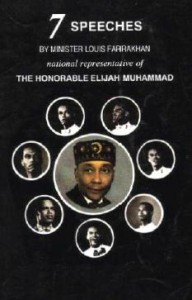 at a time when New York was being regularly saturated with the message of the Nation of Islam. In the early 1970s, New York was the scene for the early years of the ministry of the Honorable Minister Louis Farrakhan.
at a time when New York was being regularly saturated with the message of the Nation of Islam. In the early 1970s, New York was the scene for the early years of the ministry of the Honorable Minister Louis Farrakhan.
Minister Farrakhan was both the lead minister presiding over the Nation of Islam’s work in New York City and he was also the National Representative of the Honorable Elijah Muhammad. His ministry and the message of the Nation of Islam is at the heart of what real hip-hop has always been about. As it was his ministry field that served as the womb for this “new music.” A music that was not blues and not jazz but something more; this is what hip-hop or rap music is from its beginning.
New York City was a womb for the birth of the “new music” and “new culture” of Hip-Hop. And as Minister Farrakhan explained in his historic Message At The East, this new culture grew out of a particular knowledge during the period of its birth or inception. In New York, Minister Farrakhan worked tirelessly to fertilize the minds of New Yorker’s with the message of the Nation of Islam and as a result of the introduction of this new knowledge, New York eventually gave birth to the most dominant art-form and musical expression in the past 50 years. 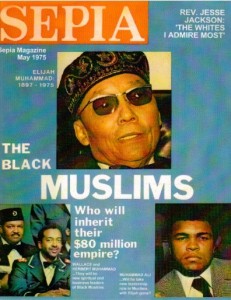 During this period of time the Minister was on the radio airwaves preaching 6 times per week. He grew 18 temples throughout the 5 boroughs and chartered 4 Muhammad Universities of Islam. And according to Sepia Magazine, he recruited 5,000 active members for the Nation of Islam in New York. In fact the Minister is one of the first to have a nationally “syndicated” radio broadcast. His broadcasts that were spreading the Nation’s message throughout New York were sent to dozens of cities around the country through the Nation of Islam’s network of radio programs in all of the cities where mosques and temples existed.
During this period of time the Minister was on the radio airwaves preaching 6 times per week. He grew 18 temples throughout the 5 boroughs and chartered 4 Muhammad Universities of Islam. And according to Sepia Magazine, he recruited 5,000 active members for the Nation of Islam in New York. In fact the Minister is one of the first to have a nationally “syndicated” radio broadcast. His broadcasts that were spreading the Nation’s message throughout New York were sent to dozens of cities around the country through the Nation of Islam’s network of radio programs in all of the cities where mosques and temples existed.
So to say Hip-Hop has Islam in its blood is not an overstatement. Grandmaster Flash, Afrika Bambaatta, Kool Herc and the Last Poets are all a part of Hip-Hop’s pantheon of founding fathers, and they all have a connection to the religion of Islam as it has been practiced in America in the Black community for more than 80 years now.
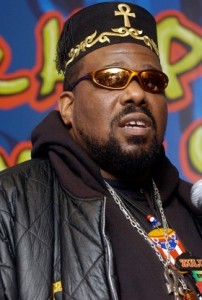 As a Muslim and a hip-hop lover, I was overjoyed to see the demonstration made this year at the Brooklyn Hip-Hop Festival. The stage beheld Hip-Hop Phenom and “number 1 draft pick” Jay Electronica and one of the most accomplished and celebrated MCs in Hip-Hop today, Jay-Z. The brilliant duo was surrounded by an impressive cadre of nearly a hundred of the young members of the Nation of Islam’s men’s class, known as the Fruit of Islam. Social media’s coverage of this event revealed diverse groups of Muslims, rappers and Hip-Hop pioneers. NOI fraternities like, the Allah Team, Lions out Of the Cage and Lost Sheep were photographed in fellowship and embrace with hip-legends like Sadat X and Lord Jamar of the group Brand Nubians.
As a Muslim and a hip-hop lover, I was overjoyed to see the demonstration made this year at the Brooklyn Hip-Hop Festival. The stage beheld Hip-Hop Phenom and “number 1 draft pick” Jay Electronica and one of the most accomplished and celebrated MCs in Hip-Hop today, Jay-Z. The brilliant duo was surrounded by an impressive cadre of nearly a hundred of the young members of the Nation of Islam’s men’s class, known as the Fruit of Islam. Social media’s coverage of this event revealed diverse groups of Muslims, rappers and Hip-Hop pioneers. NOI fraternities like, the Allah Team, Lions out Of the Cage and Lost Sheep were photographed in fellowship and embrace with hip-legends like Sadat X and Lord Jamar of the group Brand Nubians.
Revolutionary academician and NOI scholar in residence Dr. Wesley Muhammad also appeared on stage with the duo in a grand display of solidarity, brotherhood and encouragement for what such a demonstration portends for Hip-Hop’s future.
For some time now Hip-Hop has been at a crossroads. Some have opined that Hip-Hop is dead. Simultaneously in New York, while Jay-Z and Jay Electronica were in Brooklyn, Chuck D, of the Hall of Fame group Public Enemy was cross town in Harlem’s Muhammad Mosque No.7. Chuck’s appearance at Mosque No.7 rounded out a weekend of events that suggests that Hip-Hop’s founding ideology of Black Nationalist Islam is poised to take a prominent role once again in the world’s dominant youth culture.
And this is a very encouraging development. In the Black community our art forms and musical expression have never been divorced from our struggle against racism, oppression, poverty and injustice. The Blues, Spirituals, Gospel and Jazz were connected to the real life condition of being Black in America and what that necessitates of a constant struggle against forces diametrically opposed to our very existence. And Hip-Hop from its beginning was no different from its predecessor art forms in being connected to our struggle. In fact, it’s not an exaggeration to describe all Black music as being cause oriented. We have sung, rapped and danced because we had a cause to sing, rap and dance about.
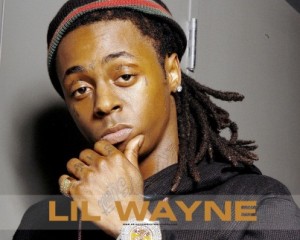 But today Hip-Hop really needs a re-birth; it needs to be redeemed and resurrected. Hip-Hop is no longer an art form that is identifiable with the struggle of the oppressed Black masses. You can no longer listen to the music of this generation of artists and know the important issues of the day. Hip Hop no longer reinforces in the minds of the youth, the ideas and ideals of our struggle.
But today Hip-Hop really needs a re-birth; it needs to be redeemed and resurrected. Hip-Hop is no longer an art form that is identifiable with the struggle of the oppressed Black masses. You can no longer listen to the music of this generation of artists and know the important issues of the day. Hip Hop no longer reinforces in the minds of the youth, the ideas and ideals of our struggle.
Instead this beloved music of my youth has been horribly corrupted. The content of most hip-hop songs promotes gross materialism, conspicuous consumption, sexism, violence and nearly every vice imaginable. And on top of that is the open ridicule and mockery of the legacy of our struggle.
Just last year it was Lil’Wayne, one of the most talented and popular rappers today, who used the name of Emmett Till in a sexual reference in a song. The phrase “beat it up like Emmett Till,” quickly drew the condemnation of many in the Black community. And after public outcry, Lil’Wayne apologized. His protégé Nikki Minaj used the iconic image of Malcolm X to promote a song on her album entitled “Lookin Ass Nigga.” And again the public had to complain in order for Nikki to realize the offense she had made and make an apology.
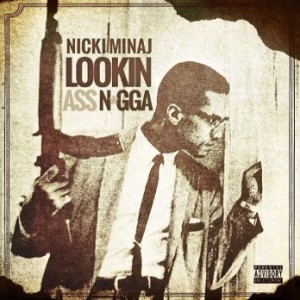 It was also quite disappointing for Hip-Hop pioneer and mogul Russell Simmons to produce a YouTube short film entitled “The Harriett Tubman Sex Tape.” The horrible parody of a fictitious sexual tryst between Harriett Tubman and her slave master again produced strong criticism of Russell’s despicable attempt at humor and forced him to apologize.
It was also quite disappointing for Hip-Hop pioneer and mogul Russell Simmons to produce a YouTube short film entitled “The Harriett Tubman Sex Tape.” The horrible parody of a fictitious sexual tryst between Harriett Tubman and her slave master again produced strong criticism of Russell’s despicable attempt at humor and forced him to apologize.
This pattern of Black celebrities and artists attempting to satisfy the need for humor and entertainment with the mockery and disrespect of our ancestors is outrageous. Emmett Till was a 14-year-old lynching victim who was so badly disfigured by racist devils in Money, Mississippi that his remains were hardly recognizable as being the remains of a human being! It was his beloved Mother, a heroine of the Black struggle in America, that decided to have an open casket funeral for her son so that the world could see the extent of the terror that Black people in America were forced to live under. Historians credit Mamie Till Mobley’s decision for an open casket funeral as the significant event that helped to galvanize and propel the Civil Rights movement and also inspired the Black Nationalist movement as well.
It is indeed a sad day for the Black community when our entertainers have become so disconnected from the struggle that they actually see nothing wrong with disrespecting our martyrs and saints like Emmett Till, Malcolm X, Rosa Parks, and Dr. Martin Luther King Jr.
We need a cultural revolution in the Black community.
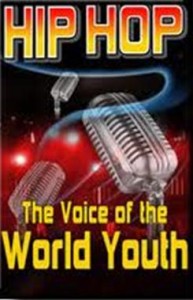 We cannot accept that the music of today’s youth instills in them contempt for the struggle of our people. We should no longer accept a cultural expression that robs the next generation of the spirit and will to fight against injustice, oppression and inequality. Just consider some of the major issues of our day, that include the rise of the prison industrial complex; the scourge of HIV on Black women; double-digit unemployment for Black men; felon disenfranchisement and the abuse and sexual exploitation of women and girls. When is the last time a popular Hip-Hop artist brought attention to any of these issues in their music? When have they used their powerful platform to educate, minister, inspire and enlighten their millions of impressionable youths and young adults?
We cannot accept that the music of today’s youth instills in them contempt for the struggle of our people. We should no longer accept a cultural expression that robs the next generation of the spirit and will to fight against injustice, oppression and inequality. Just consider some of the major issues of our day, that include the rise of the prison industrial complex; the scourge of HIV on Black women; double-digit unemployment for Black men; felon disenfranchisement and the abuse and sexual exploitation of women and girls. When is the last time a popular Hip-Hop artist brought attention to any of these issues in their music? When have they used their powerful platform to educate, minister, inspire and enlighten their millions of impressionable youths and young adults?
This is why the demonstration of Jay Electronica, Jay Z and the Nation of Islam at Brooklyn’s Hip Hop Festival is so important. It gives to us a glimmer of hope that Hip-Hop just might be saved by being returned to its roots. It gives me hope that a renewed and redeemed Hip-Hop music and culture may be preserved for my own children who were excited to see their beloved Nation of Islam in the mix with some of their favorite artists.
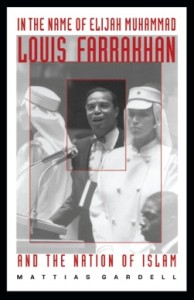 The excitement of my own children over this event created for me, as a father, “a teachable moment.” It was for me an occasion to have a wonderful conversation with my sons about music, history, Islam and the struggle of Black people. I could look in their eyes and know that they were engaged and were listening to me as perhaps they hadn’t in a long while. That experience with my own sons gave me a very personal indicator of the value of what Jay Electronica’s bold demonstration represents. As I reflected over this moment in my own life I was reminded of what the Bible describes as the work of Elijah. In the book of Malachi it says that God would send to the people Elijah and he “will turn the hearts of the parents to their children, and the hearts of the children to their parents.”
The excitement of my own children over this event created for me, as a father, “a teachable moment.” It was for me an occasion to have a wonderful conversation with my sons about music, history, Islam and the struggle of Black people. I could look in their eyes and know that they were engaged and were listening to me as perhaps they hadn’t in a long while. That experience with my own sons gave me a very personal indicator of the value of what Jay Electronica’s bold demonstration represents. As I reflected over this moment in my own life I was reminded of what the Bible describes as the work of Elijah. In the book of Malachi it says that God would send to the people Elijah and he “will turn the hearts of the parents to their children, and the hearts of the children to their parents.”
In his voluminous study of Minister Farrakhan and the Nation of Islam during the 1980s and 1990s, Swedish professor, Mattias Gardell observed that “Black Islamic nationalism has become widely popular among Black urban youth, and Farrakhan exerts an influence with these youths that far exceeds the actual membership of his organization. This is truly significant, given the fact that the African-American urban population is a young population, with a median age of 24.9 years old for blacks compared to 34.6 years for the other city dwellers. The vitality of Black Islam as an integral part of contemporary black youth culture is visible in the new Black independent movies, in the hip hop movement, in artifacts and clothing, in literature and comics, in college life, in graffiti and other arts, and in gang symbolism. Farrakhan has a unique capability …able to reach deeply into the souls of black youths…is able to talk to them in a way that really makes them listen…this rapport enables Farrakhan to criticize and redirect destructive behavioral patterns”.
The work of the Honorable Minister Louis Farrakhan among the youth in the Hip-Hop culture is the work of Elijah being done in this modern-day and time. Jay Electronica is the most recent artist to stand as a reflection of Minister Farrakhan’s influence on Hip-Hop. And I join the Honorable Minister Louis Farrakhan in encouraging Jay Electronica’s career as an artist and extend well wishes for his development and growth as a human being.(http://www.finalcall.com/artman/publish/Perspectives_1/article_101628.shtml)
He should now unite with other cause oriented artists and progressive Hip-Hop thinkers and meet to confer over Minister Farrakhan’s call for a Cultural Revolution. Artists like Jasiri X, Janelle Monae, Lauryn Hill, David Banner, Nas, Jay-Z, Chuck D, Professor Griff, Lupe Fiasco, Big Krit, Dead Prez, Brother Ali, Killer Mike, Problem 13, Gat Turner, KAM, H2, Immortal Technique and others should meet with Minister Farrakhan in Chicago. They should convene a Conference for Cultural Revolution. And just like the Honorable Elijah Muhammad taught of the holy wise scientists of Islam who write scripture, these artists and thinkers should write the history of arts and culture in advance. They should meet, plan, network and conclude that from this point forward, the will use their respective talents and abilities to shape and mold the thinking of their people toward noble ideals and principles.
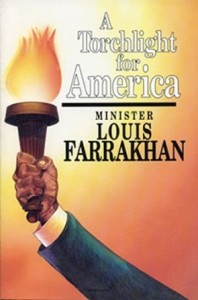 In his brilliant analysis of the problems plaguing America, Minister Farrakhan called for a cultural revolution. The Minister’s ideas on Cultural Revolution and the convening of the artistic community can be found in his book A Torchlight for America. In Chapter 6 of Torchlight for America, the Minster writes: “The artistic community has historically been in the vanguard of social change. What is now needed is for the artistic community to lead a cultural revolution. On the physical level, man is what he eats. Spiritually, “…as he thinketh in his heart, so is he…” (Proverbs 23:7) If the American people are constantly fed filth and garbage through newspapers, magazines, television, movies, plays and music; if the public, like the proverbial swine, has become a lover of filth; and if thoughts guide behavior, what do the thoughts of the American people produce? Do the thoughts of the American people produce rape, incest, murder, theft, greed, and the destruction of family and the institutions of society? I would argue that the answer is yes.
In his brilliant analysis of the problems plaguing America, Minister Farrakhan called for a cultural revolution. The Minister’s ideas on Cultural Revolution and the convening of the artistic community can be found in his book A Torchlight for America. In Chapter 6 of Torchlight for America, the Minster writes: “The artistic community has historically been in the vanguard of social change. What is now needed is for the artistic community to lead a cultural revolution. On the physical level, man is what he eats. Spiritually, “…as he thinketh in his heart, so is he…” (Proverbs 23:7) If the American people are constantly fed filth and garbage through newspapers, magazines, television, movies, plays and music; if the public, like the proverbial swine, has become a lover of filth; and if thoughts guide behavior, what do the thoughts of the American people produce? Do the thoughts of the American people produce rape, incest, murder, theft, greed, and the destruction of family and the institutions of society? I would argue that the answer is yes.
Therefore, along with summoning the spiritual leadership to convene with leadership in government, the artistic community needs to be shown its responsibilities to the overall mental and spiritual health and well-being of society and the world. Our gifts, as artists, are a blessing from God. We have the responsibility of the proper use of our gifts. Additionally, movie producers, record producers and publishers all have a responsibility to the spiritual, moral and mental well-being of the American people.” (http://www.finalcall.com/artman/publish/Minister_Louis_Farrakhan_9/article_6577.shtml)
Demetric Muhammad
